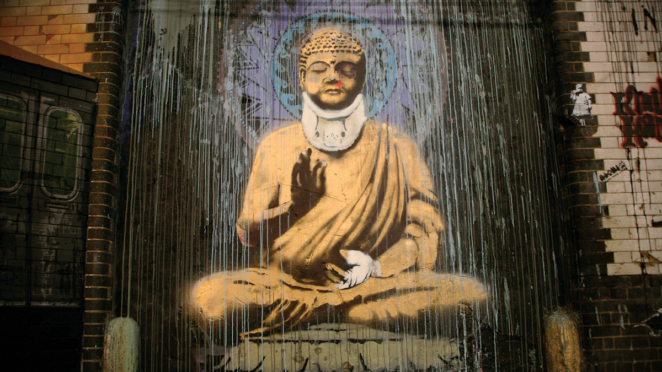Buddhism is one of the world’s oldest and broadest religions and has become increasingly popular in recent decades among both long-time practitioners and those who have never been exposed to it before. As the world becomes more fast-paced and convenience seems a priority, many people seek more balance than modern society offers.
Buddhism provides those seeking an organic return to inner peace with various approaches that rely on age-old, relevant philosophies, meditation techniques, mindfulness practices, and spiritual teachings. Here are some benefits associated with practicing modern Buddhism and the potential challenges.
Benefits of Modern Here are some benefits associated with practicing modern Buddhism and the potential challenges

- Improved mental clarity. When practicing modern Buddhism, individuals learn to recognize when they feel overwhelmed and anxious by holding space for their emotions without judgment. This allows them to make better decisions because they are more objective and mindful of their thoughts and feelings. Learning to let go of negative thoughts and emotions is an important part of Buddhist practice, as it helps reduce the stress that may lead to physical illness. Websites like thelamrim.org have courses that teach this and so much more as a way to gain mental clarity.
- Enhanced compassion and empathy. Through meditation and mindfulness, individuals develop a deeper understanding and appreciation for the world around them, allowing them to connect with others more profoundly. This allows them to cultivate empathy and compassion, leading to healthier relationships and greater well-being. Another way Buddhism enhances compassion and empathy is by teaching individuals to be mindful of their thoughts and feelings. By recognizing the emotions they are experiencing, they gain greater insight into what others may be going through in a given situation, allowing them to respond with kindness and understanding.
- Increased self-awareness. Modern Buddhism teaches individuals to embrace their imperfections, accept themselves as they are, and be mindful of their thoughts and actions. This helps them become more aware of their motivations, triggers, and patterns of behavior, which can then be changed if needed. By increasing self-awareness in this way, individuals become better at making decisions that honor what they want out of life and the needs of those around them. This could lead to greater contentment and satisfaction with day-to-day living and attaining long-term goals and ambitions.
- Greater appreciation for life’s experiences. When life slows down, and individuals take the time to appreciate what is around them, they better understand how their actions affect the world. This appreciation for life’s experiences opens up more possibilities for inner growth, development, and greater meaning in everyday moments. By recognizing the beauty of life through Buddhism, individuals come to terms with hardships more easily and move forward healthier. That fosters gratitude for the good times, which can be a powerful tool in creating greater joy and satisfaction.
- Increased sense of inner peace. The ultimate goal of Buddhist practice is to find inner peace by becoming aligned with the true nature of one’s being. This makes individuals more balanced and centered, leading to greater contentment and well-being.
By learning to let go of negative emotions and thoughts, individuals gain an increased sense of inner peace, leading to a calmer state of mind. Through this practice, they may more easily overcome addictions or other destructive behaviors.
Challenges of Modern Buddhism

Modern Buddhism faces many challenges as it adapts to the current social and cultural environment. Find the challenges discussed below.
Initial Struggles With Meditation and Mindfulness
Although meditation and mindfulness have immense benefits, they can also be challenging to master. Individuals may struggle with staying focused on their breath and body in a meditative state or find it difficult to observe their thoughts objectively when practicing mindfulness.
To overcome these obstacles, be patient and dedicate time to practicing regularly. Seeking help from an experienced teacher may also make a significant difference in the process, as they provide guidance and support when needed.
Unlearning Old Habits
For many people, old habits and behavior patterns are difficult to break, as doing so requires dedication and conscious effort over a long period. To create healthy change in their lives, individuals need to practice mindfulness daily to become aware of unhealthy behaviors when they arise.
Small changes, such as taking a few moments every day to sit in silence or completing short meditations, allows individuals to develop healthier habits gradually. They should also be kind to themselves and remember that progress is rarely linear.
Becoming Too Attached To the Practices
Although mindfulness and meditation can be incredibly beneficial, remember that they are the only tools that open doors to inner growth and development. If people become too attached to these practices, they may miss out on other aspects of life that could lead to positive changes and personal growth.
Therefore, individuals must find balance in their practice to maintain sight of all the possible experiences available in life. This will help ensure that mindfulness remains a helpful tool instead of becoming rigid or overwhelming.
Difficulty Staying Present in Everyday Life
When living a fast-paced life, it is easy to forget that every moment matters. Although mindfulness and meditation help with this, it may be difficult for many individuals to stay present in their day-to-day lives.
To address this challenge, individuals must keep reminding themselves of the importance of being mindful throughout the day. They should also take time out of their schedules to practice mindfulness regularly so that they remember its value and incorporate it into their daily routine.

Social Pressure
In some cultural and social circles, there is a great deal of pressure to practice mindfulness and meditation perfectly. This makes some individuals feel overwhelmed or inadequate when they don’t meet their standards or those of others. Individuals must strive to practice mindfulness and meditation for themselves rather than seeking approval from others. They should also remember that everyone’s journey is unique, and they do not need to compare themselves to anyone else.
Modern Buddhism offers many benefits, such as increased inner peace and a greater appreciation for life. However, some challenges may arise when practicing meditation and mindfulness, such as initial struggles, difficulty staying present, and social pressure. Individuals should be patient with themselves and remember that progress is rarely linear. With dedication and commitment to the practices, the benefits of modern Buddhism can be obtained while managing the potential difficulties.




